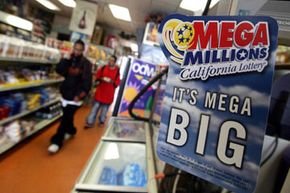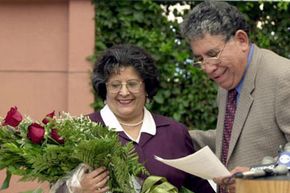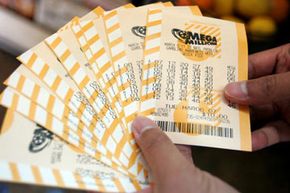It's the dream of the millions of people around the world who play lotteries -- to win the big one and be set for life. But for some, that dream come true has been a nightmare. The annals of lottery winner lore are riddled with people who won millions and found that their windfall made their lives much worse, not better.
Take Willie Hurt, who won $3.1 million in the Michigan Lottery in 1989. Within just a couple years, Hurt was divorced, estranged from his children and addicted to crack cocaine [source: Business Pundit]. Suzanne Mullins won $4.2 million in the Virginia Lottery. After a family member suffered a lengthy illness, she spent $1 million on his care and went into debt to the tune of nearly $200,000 [source: Bankrate].
Advertisement
At the other extreme are Al and Carmen Castellano, a hard-working family who scraped by during their lifetime together, putting three children through college and finding happiness with what they had. Al and Carmen won $141 million in California's lottery in 2001. The Castellanos have been largely unchanged by their windfall: They have the same circle of friends, they still go on family trips (though more comfortably). They made sure they put their money to use, rather than be changed by sudden riches.
We spoke to the Castellanos about how they managed their record-setting lottery win so well and compiled a list of five lottery survival tips any winner should take into account.





